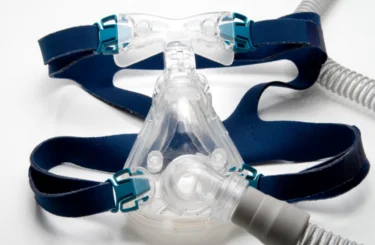
Severe Stomach Paralysis Linked to Popular GLP-1 Diabetes and Weight Loss Drugs
Early last month, the U.S. Judicial Panel for Multidistrict Litigation (JPML) announced it would consolidate all GLP-1 medication complaints into a single multi-district litigation (“MDL”).
This decision affects several highly successful name-brand drugs, including Ozempic, Wegovy, Mounjaro, and Zepbound. These medications—originally designed to treat diabetes—recently spiked in popularity when research identified them as a breakthrough weight loss treatment that has brought billions in profits to manufacturers.
Unfortunately, this new weight loss solution might not be as favorable as researchers originally thought. A growing number of patients are now blaming GLP-1 manufacturers for not disclosing that the drugs cause painful and debilitating stomach paralysis, along with other severe illnesses and diseases.
How Do GLP-1 Medications Work?
The GLP-1 medications at the center of this controversy are classified as “agonists.” Agonists are manufactured substances designed to mimic the function of a naturally occurring hormone or neurotransmitter.
In this case, GLP-1 agonists perform the same function as the glucagon-like peptide-1 already in the body’s system. These agonists are released into the intestines after eating. From there, agonists travel up to the brain’s hunger center, carrying messages that help reduce blood sugar and energy intake.
The FDA originally approved GLP-1 medications as a treatment for Type 2 diabetes. However, in the past few years, they’ve become a wildly popular weight loss medication and include these drugs:
- Trulicity
- Ozempic
- Mounjaro
- Wegovy
- Zepbound
- Rybelsus
Currently, except for Rybelsus, all GLP-1 medications are administered as either weekly or daily shots. Manufacturers are working hard to create a pill form for these medications so they can get them into the hands of more consumers.
The Pros and Cons of Using a GLP-1 Medication
It’s easy to see why GLP-1 medications are so popular. Along with curbing hunger and controlling weight loss, research indicates GLP-1 drugs offer several additional benefits, such as a lower risk of heart disease and heart failure, a lower risk of stroke, and decreased kidney disease. Patients also report improved blood pressure and better levels of cholesterol.
A major downside, of course, is the shots. Some additional negative side effects include intermittent and mild nausea, vomiting, diarrhea, and hypoglycemia.
Certain lab studies also suggest the possibility that GLP-1 medications may increase the likelihood of tumors—specifically, a higher risk of thyroid cancer. However, the crux of the current GLP-1 lawsuit has nothing to do with these known risks and side effects. Rather, they have to do with severe illnesses and diseases that were not disclosed by the manufacturers.
Stomach Paralysis: The Undisclosed Risk of GLP-1 Medication
The first GLP-1 lawsuit was filed in August of 2023 by a patient who was hospitalized for severe stomach pain and vomiting after taking Ozempic and Mounjaro for her type 2 diabetes. Since then, dozens of GLP-1 lawsuits have followed, all filed by patients with similar stories and symptoms.
In February 2024, these claims were combined into an MDL. The complaints specifically name Ozempic, Wegovy, and Mounjaro injections—along with Rybelsus tablets—and blame these medications for causing:
- Gastroparesis (stomach paralysis)
- Gallbladder removal prior to March 2022
- Ileus or bowel obstruction
- Deep Vein Thrombosis (DVT)
- Esophageal Injury
- Pancreatic Cancer
- Sarcopenia
- Wernicke Encephalopathy
- Persistent and severe vomiting or diarrhea for over 2 weeks
Patients claim manufacturers knew these products caused stomach paralysis and the other listed damages above, but sacrificed consumer health and safety to improve their profit margins.
Were You Injured by Taking a GLP-1 Medication?
Drug manufacturers have a duty of care to consumers. If you took Trulicity, Ozempic , Mounjaro, Wegovy, Zepbound or Rybelsus for more than 30 days and suffered any of the following injuries or diseases, you may be entitled to compensation:
- Persistent vomiting for 2+ requiring medical care with a specialist;
- Hospitalization for vomiting, diarrhea, and/or gastric injuries while taking any of these drugs or withing 60 days of stopping;
- Diagnosed with any of the following while taking these medications or within 6 months of stopping:
- Gastroparesis (stomach paralysis)
- Gallbladder removal prior to March 2022
- Ileus or bowel obstruction
- Deep Vein Thrombosis (DVT)
- Esophageal Injury
- Pulmonary Aspiration
- Diagnosed with pancreatic cancer, sarcopenia, or Wernicke encephalopathy while taking these medications or after stopping.
Contact Sommers Schwartz today for a free consultation, and let our team of highly experienced attorneys help get you the compensation you deserve.
Lisa Esser-Weidenfeller
Lisa Esser-Weidenfeller represents injury victims in personal injury and medical malpractice claims. She also represents individuals in cases against those who have committed horrific acts of sexual assault.





